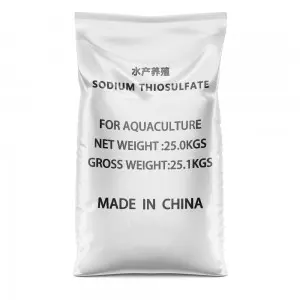



Chemicals Used in the Treatment of Sewage Water for Environmental Safety
Understanding Sewage Water Treatment Chemicals
Sewage water treatment is an essential process in maintaining public health, environmental integrity, and overall quality of life. As urbanization increases and populations swell, the importance of effectively treating wastewater has never been more critical. Central to this process are sewage water treatment chemicals, which play a vital role in purifying wastewater and ensuring its safe return to the environment or its reuse. In this article, we will explore the various types of chemicals used in sewage water treatment, their functions, and the challenges associated with their use.
Types of Sewage Water Treatment Chemicals
Sewage water treatment chemicals can be categorized into several main types based on their functional roles in the treatment process
1. Coagulants and Flocculants Coagulants, such as aluminum sulfate (alum) and ferric chloride, are added to wastewater to promote the aggregation of suspended solids. This process is known as coagulation. Once the solids clump together, flocculants, which are typically long-chain polymers, help to form larger flocs that settle out of the water more easily. This combination effectively reduces turbidity and aids in the initial removal of pollutants.
2. Disinfectants After primary and secondary treatment processes, disinfectants are employed to eliminate pathogens and harmful microorganisms from the treated water. Common disinfectants include chlorine, ozone, and ultraviolet (UV) light. Each disinfection method has its advantages and disadvantages; for instance, while chlorine is effective and cost-efficient, its use can lead to the formation of harmful by-products, necessitating careful monitoring and application.
3. pH Adjusters The pH of wastewater can significantly impact the effectiveness of other treatment chemicals and the overall treatment process. Acids (such as sulfuric acid) or alkalies (such as sodium hydroxide) are used to adjust the pH to optimal levels. Maintaining a balanced pH is crucial as extreme pH conditions can inhibit microbial activity in biological treatment processes.
4. Nutrient Additives In some cases, particularly in biological treatment methods, additional nutrients like nitrogen and phosphorus might need to be introduced to support the growth of microorganisms that break down organic matter. Controlled addition of these nutrients is essential to prevent deficiencies that could stall the treatment process.
sewage water treatment chemicals

5. Odor Control Agents Sewage treatment plants often combat unpleasant odors, which can be a nuisance to surrounding communities. Chemicals such as hydrogen peroxide, calcium nitrate, and various biofiltration media can be implemented to mitigate these odors effectively.
Challenges in Using Sewage Water Treatment Chemicals
While sewage water treatment chemicals are indispensable, their use is not without challenges. One major concern is the potential environmental impact of residual chemicals left in treated water. For example, chlorinated by-products can be harmful to aquatic ecosystems. Moreover, the choice of chemicals and their dosages must be carefully managed—over-application can lead to chemical imbalances and affect the treatment's efficiency.
Additionally, the cost of these chemicals can become a significant part of municipal budgets, prompting a search for more sustainable and cost-effective alternatives. This calls for ongoing research into environmentally friendly reagents and enhanced treatment technologies.
Finally, regulatory compliance poses a challenge for sewage treatment facilities. They must adhere to stringent environmental regulations and monitoring requirements, which necessitate accurate dosing and reporting of chemical use.
Conclusion
Sewage water treatment chemicals are crucial in the complex process of wastewater management. From coagulants to disinfectants, their roles are varied and vital in producing clean, safe water. However, the challenges associated with their use underscore the importance of continual innovation in wastewater treatment methods. As the world seeks to balance public health, environmental protection, and resource reuse, advancements in sewage water treatment chemicals will undoubtedly play a pivotal role in shaping the future of wastewater management.
-
Why Sodium Persulfate Is Everywhere NowNewsJul.07,2025
-
Why Polyacrylamide Is in High DemandNewsJul.07,2025
-
Understanding Paint Chemicals and Their ApplicationsNewsJul.07,2025
-
Smart Use Of Mining ChemicalsNewsJul.07,2025
-
Practical Uses of Potassium MonopersulfateNewsJul.07,2025
-
Agrochemicals In Real FarmingNewsJul.07,2025
-
Sodium Chlorite Hot UsesNewsJul.01,2025










